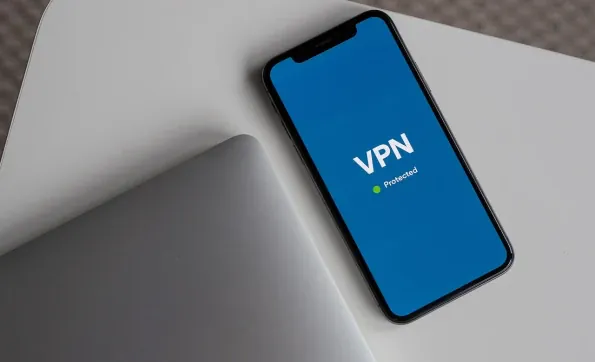The virtual private network (VPN) landscape has evolved significantly, and finding the best VPN in 2025 requires thorough consideration of various features to meet both your needs and budget. As cyber threats continue to grow and the demand for online privacy soars, selecting a VPN entails analyzing key elements, such as internet speed loss, privacy protections, server network, device support, streaming capabilities, and overall cost. With these factors in mind, the perfect VPN can offer you a seamless and secure online experience tailored to your specific requirements.
Internet Speed Loss
A VPN inherently impacts internet speed due to the rerouting of traffic through encrypted servers. The fastest VPNs minimize this speed loss to 25% or less, which is generally unnoticed by users with slower connections, such as satellite internet. For bandwidth-intensive activities like gaming, 4K video streaming, or large file uploads, minimal speed loss is imperative. In our 2024 testing, NordVPN emerged as the top performer, with an average speed loss of just 11%.
Other notable VPNs with respectable performance include Mullvad, Surfshark, Proton VPN, and ExpressVPN, all maintaining an average download speed loss of 25% or less. Speed loss percentages indicate the extent to which each VPN slows down your connection. These figures show that some VPNs are better suited for ensuring fast and reliable connections, despite the slight compromises that come with encrypted traffic routing. As internet use cases grow in complexity and intensity, the importance of speed loss minimization can’t be overstated.
Privacy
VPNs enhance privacy by masking your public IP address and concealing your geographical location. The best VPNs provide robust privacy features, such as 256-bit encryption (for OpenVPN and IKEv2 protocols) or ChaCha20 (with WireGuard), a strict no-logging policy, and DNS leak protection. Given the challenge of verifying logging claims, third-party audits are crucial. While these audits are important for ensuring VPN integrity, they do not fully guarantee complete privacy.
Transparency reports and a kill switch feature further bolster user confidence by assuring users that their data won’t be exposed, even if the VPN connection drops. Advanced privacy features such as obfuscation techniques, Tor over VPN, and double VPN services are beneficial for users with critical privacy needs, such as investigative journalists or political activists. It’s advisable for these users to opt for VPN providers operating outside Five, Nine, or Fourteen Eyes intelligence-sharing jurisdictions for added peace of mind and enhanced privacy protection. Understanding the true nature of a VPN provider’s privacy policy can be empowering for users seeking maximum anonymity.
Server Network
When evaluating VPN server networks, consider the number of servers and their geographical diversity. A higher number of servers across numerous countries enhances your options for international connections, allowing for a better browsing experience. The top VPNs for travel offer access to over 90 countries, but a selection of 60 or more is usually sufficient for most users. Some VPNs support file sharing on all servers, while others designate specific P2P (peer-to-peer) servers for such activities.
For users interested in torrenting, it’s essential to verify the provider’s file-sharing policies. Specialty servers, like Tor over VPN, double VPN, and obfuscated servers, offer additional privacy by strengthening encryption or making VPN usage less detectable to ISPs. This is essential for users who need heightened security measures when accessing restricted or sensitive information. A diverse and expansive server network can make a significant difference in connectivity and overall user experience.
Device Support
VPN compatibility with various devices is crucial, given the increasing number of internet-connected devices in a typical household. Most VPNs offer apps for Windows, macOS, Linux, Android/Android TV, iOS/iPadOS, and popular web browsers. Increasingly, VPNs are developing Apple TV apps, with providers like ExpressVPN, Surfshark, Proton VPN, PIA, NordVPN, PrivadoVPN, and IPVanish including tvOS applications. Linux users may find graphical user interface (GUI) applications more user-friendly than command line interfaces, with Surfshark, Proton, and PIA offering compelling Linux VPN options.
Support for Windows ARM architecture is also available with NordVPN, Surfshark, Proton VPN, ExpressVPN, and PIA. Installing a VPN on a router can provide whole-home coverage, but this may void the router’s warranty. Most VPNs allow unlimited installations but limit simultaneous connections. ExpressVPN, for instance, allows eight simultaneous connections, while NordVPN and Proton permit ten. Providers like Surfshark, PIA, and IPVanish offer unlimited connections, making them excellent choices for families or power users with multiple devices.
Streaming Capabilities
VPNs serve not only to protect privacy but also to bypass geo-restrictions on streaming content. They enable access to streaming services such as Peacock, Max, or Hulu from your home country while abroad. Additionally, VPNs unlock foreign libraries on platforms like Netflix, Disney Plus, and Amazon Prime Video. This can even lead to cost savings by accessing different regional content, which could be priced differently based on location. For those who seek to take advantage of a broader range of content from different international streaming services, having a VPN with robust streaming capabilities is indispensable.
For users interested in streaming content without geographical constraints, selecting a VPN known for bypassing geo-restrictions is crucial. These VPNs are optimized to handle the demands of high-definition streaming and ensure smooth playback without the annoying interruptions due to buffering. This functionality proves to be a game-changer for globetrotters or expats seeking to keep up with their favorite shows and movies no matter where they are in the world.
Cost
VPN pricing varies widely, with options ranging from monthly to multi-year subscriptions. Although multi-year plans typically offer the most savings, an annual plan can minimize risk. A VPN’s performance and services may change over time, becoming slower, experiencing data breaches, or altering access to geo-restricted content. At the high end, ExpressVPN costs approximately $100 annually, while Surfshark and PIA offer competitive pricing between $40 to $60 per year. Be wary of price hikes, such as NordVPN’s renewal rate jumping from $60 to $140 annually after the first year.
Similarly, Surfshark’s renewal rate increases from $48 to $60 annually. Seasonal discounts, like Black Friday or Cyber Monday deals, can help avoid raised renewal rates, making it more affordable to secure quality VPN services. For those on a budget, consider affordable options like Surfshark, PIA, or Mullvad. Moreover, being mindful of long-term costs can save users from unexpected expenses and ensure they continue to receive the best value for their investment.
Additional Considerations
It’s advisable to avoid free VPN providers, except for Proton, known for delivering the top free VPN service available. Paid VPNs are recommended for their reliability, superior performance, and robust security features. While seeking a no-logs VPN is beneficial, understand its limitations; complete anonymity is not guaranteed, though no-logs policies minimize data retention. iOS users should be aware of device-only VPN leaks reported in recent independent research. These leaks affect iPhones and iPads running iOS 14 or later, regardless of the VPN used.
To mitigate potential leaks, users can install a VPN on their router for full Wi-Fi encryption or enable their VPN’s kill switch and use OpenVPN protocols. Apple advises activating the Always On VPN profile for additional protection. VPN transparency is also vital, with “warrant canaries” indicating whether a government has subpoenaed the service. However, these canaries do not paint the full picture. Users need to investigate their VPN’s history of compliance with authorities and the manner of disclosure to make informed choices.
Conclusion
The virtual private network (VPN) market has seen significant changes, making it essential to carefully evaluate various features when searching for the best VPN in 2025. With the ever-growing cyber threats and increasing demand for online privacy, choosing the right VPN means looking into several crucial aspects. These include the impact on internet speed, the strength of privacy protections, the comprehensiveness of the server network, compatibility with multiple devices, streaming capabilities, and the overall cost.
In the current digital age, a reliable VPN can provide a secure and seamless online experience. It’s not just about masking your IP address, but also about ensuring that your data remains private and that you can enjoy the content you love without sacrificing speed or performance. Evaluating how a VPN handles these factors will be essential in making the right choice.
Moreover, the availability of servers across different regions can affect your browsing and streaming quality, especially if you need access to content that may be geo-restricted. Device support is also crucial, as you’ll want a VPN that works smoothly across all your gadgets, whether you’re using a computer, smartphone, or tablet.
Lastly, balancing cost with the features offered is key. Sometimes, the most expensive options aren’t necessarily the best ones for your needs. Thoroughly considering all these aspects will help you find the ideal VPN in 2025 that fits your specific requirements and budget, ensuring a safe, private, and efficient online experience.













